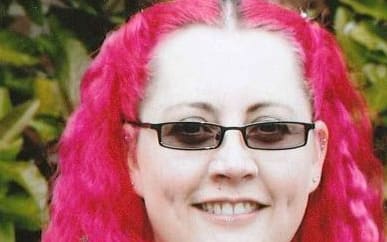Nine to Noon's science commentator Siouxsie Wiles talks about infertility, IVF and her decision to donate her eggs to a close friend.

Dr Siouxsie Wiles Photo: University of Auckland
Around 100 New Zealand women donate their eggs each year to infertile couples, and the demand is so high that many couples also advertise themselves. The experience of donating an egg is much harder than sperm donation as donors themselves undergo an IVF cycle to stimulate their ovaries to create enough eggs for the process.
Read an edited snapshot of their conversation.
On her decision to donate her eggs
When I was in my early 20s I was diagnosed with polycystic ovaries. So this means that my menstrual cycle was really irregular. They said to me that if I want to have children it was likely that I’d need assistance. And as it was when Steven and I were trying to have a baby we tried for several years and then we were just in the process of starting to go for help when I had a miscarriage. And that miscarriage seemed to completely jumpstart my entire cycle. Then I was pregnant a few months later with my daughter.
So knowing that that could have been me, that really I may well have been a lady who needed a donor... And I would have wanted somebody to step up and do that for me, or I would have been grateful if somebody had stepped up and done that for me. So I think in the back of my head I always had that 'If you’d expect somebody to do that for you, you should be willing to do that for somebody else even if you don’t need it'. And so I thought, yep. At that stage I had my family, I was done. My eggs were of no more use to me. So it seemed like a small thing for something that could just change somebody’s life and something they really, really wanted. Being a biologist, it was just ‘Well, it’s just a bit of DNA, really. I’m donating this small part of me.’ Really it felt like quite an insignificant thing. And we were all very open about the process.
On meeting the baby
What I was worried about was how I was going to feel when I first met the baby and whether there would be any maternal pull at all. What was just fabulous when I met the baby was that there was nothing. Just seeing my friend with her baby I was like ‘Oh, my god. It is totally her baby’. And, yes, OK. She may have some of my traits. It was kind of funny actually, all the grandparents going ‘Who does she look like?’ She looks like a baby, frankly, and it’s going to very hard to tell until much later who she looks like. I just immediately felt when I met her that she was an amazing addition to our family, but she wasn’t my baby. And that was wonderful.
On infertility treatment
I think it’s really important to recognise why people go for assisted reproductive technologies – ART. We have couples who have difficulty conceiving, and this could be for genetic reasons but could also be for sexually transmitted diseases reasons, but also for chemotherapy reasons. There’s women who are going through early menopause so often they might require a donor egg... same-sex couples obviously need the other ingredient that’s required and single women often have put off having children or finding a partner for their careers. So it’s kind of complicated. There’s lots of those things going on. It’s this ticking time bomb, infertility, where we’re going to need more people going through assisted reproductive technologies because of this thing.

